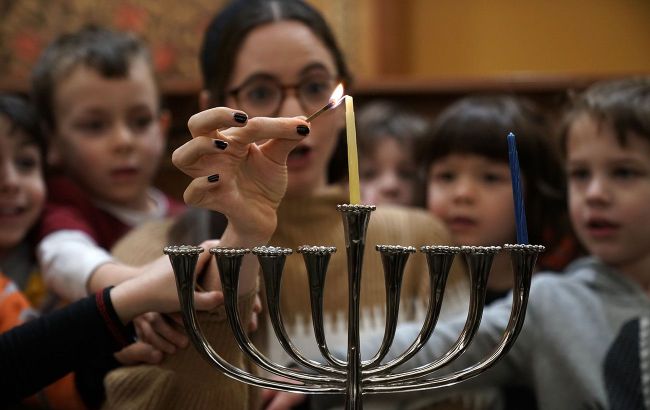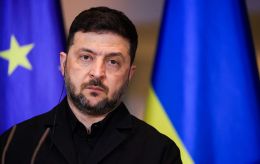Hanukkah begins today: When to light candles
 Illustrative photo (Getty Images)
Illustrative photo (Getty Images)
On the evening of December 7, the celebration of Hanukkah begins, traditionally observed for 8 days. Hanukkah is also known as the Festival of Eight Candles or the Festival of Lights.
RBC-Ukraine provides more insights into this Jewish holiday, its traditions, and its significance, citing Wikipedia, Turei Zagav, and Toldot.
What is Hanukkah?
Hanukkah has a historical foundation dating back to the 2nd century BCE when Jews could freely practice their religion, as then-emperor Alexander the Great allowed complete freedom of worship.
Around 175 years BCE, the religion became a red flag for the new ruler, Antiochus Epiphanes. He banned the religion, depriving Jews of the ability to freely study the Torah and practice their faith.
Simultaneously, Antiochus imposed Greek culture on the Jews and considered himself a true deity. However, the people resisted, continuing to fight for their freedom. After three years of struggle, despite being vastly outnumbered, the rebel army won victory after victory, culminating in the reconquest of Jerusalem's temple.
In the temple, the Jews found a jug with ritual oil for lamps. It was only enough for one night, but a miracle occurred – the golden menorah burned for 8 days. During this time, the Jews managed to prepare new supplies of oil for the lamps.
Three years before this event, the Jerusalem temple had been partially destroyed and defiled, necessitating its purification. Traditionally, candles or oil lamps were used for this purpose. The Hebrew word for "dedication" is "Hanukkah."
In honor of this, Jews celebrate Hanukkah each year, lighting candles for eight days. The number of candles symbolizes the ordinal number of the day of the holiday – one candle on the first day, two on the second, and so on, with eight on the eighth day.
But why nine candles? That's because, in addition to the main candles, there is an extra one called the "shamash" or "servant," which, according to tradition, is used to light all the others. In total, 44 candles are used over the 8 days of celebration.
In ancient times, pear-shaped lamps with openings for wicks and an oil reservoir were used. And only later did candles and special candleholders appear.
When is Hanukkah celebrated?
Translated as "festive opening," Hanukkah is considered one of the liveliest holidays in Judaism. It lasts for 8 days, beginning on the 25th day of the month of Kislev, tied to the lunar calendar.
The date is usually changing, and in 2023, the lighting of the candles begins on the evening of December 7, lasting until December 15.
Hanukkah traditions
Over the 8 days, candles are lit on the hanukkiah (menorah), adding one candle each day. On the first day, one is lit, on the second day – two, and so on. The candles are placed from right to left but lit from left to right.
Candles should be lit before sunset and must burn for at least 30 minutes after darkness falls. Menorahs are typically placed in windows for passersby to see.
The light from Hanukkah candles should not be used for practical purposes, such as illuminating a room or for reading. After Hanukkah, the oil and wicks must be burned.
In synagogues, the "Hallel" thanksgiving prayer is recited for 8 days, while homes typically host lavish feasts.
For Hanukkah, people prepare donuts with yeast dough (sufganiyot) with various fillings, pancakes, and latkes (potato pancakes).
During Hanukkah, children receive small amounts of money (Hanukkah gelt) and toys, and they are treated to sweets. The game of Hanukkah dreidel is also played. The sides of the dreidel bear the first letters of the words in the phrase "A great miracle happened here" or "A great miracle happened there" (for the diaspora).
Women are prohibited from working during Hanukkah, symbolizing gratitude for women for the miracle of Hanukkah, as they faced severe hardships during Greek rule.
Mourning for the dead is forbidden during Hanukkah. The holiday is dedicated to the living – family, relatives, and friends. Fasting and strict diets are not observed during Hanukkah.
While adults do not have days off during Hanukkah, children get to enjoy school holidays.

